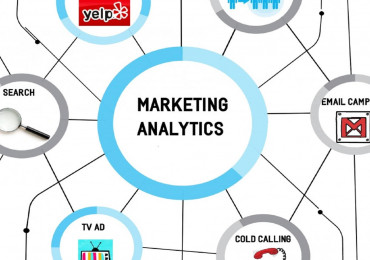
It is a type of marketing that relies on selling dreams and ambitions to the public, where the brand presents its products or services as a means to achieve a better life or achieve great goals. This type of marketing focuses on the emotional and psychological aspect, and aims to arouse hope and optimism in the public, which motivates them to strive to achieve their dreams by purchasing the product or service.
Dream marketing reflects an ambitious and ideal vision of life, and is often associated with success, luxury, happiness, and financial independence, which attracts the public to associate with the brand.
Characteristics and characteristics of dream marketing:
- Focus on emotion: Targets emotions and personal dreams more than practical benefit.
- Ideal portrayal of life: Shows the product as part of an ideal and successful life.
- Motivational messages: Uses inspirational messages that encourage the pursuit of self-realization and dreams.
- Link to personal ambition: Links the product to achieving personal ambitions and desires.
Benefits:
- Strong customer attraction: Attracts people looking to improve their lives and achieve their dreams.
- Building a long-term relationship: Creates a strong emotional connection with the brand.
- Enhance brand image: The brand becomes synonymous with hope and success.
- Raise the value of products: It can make customers willing to pay higher prices to achieve what the product suggests.
Features of dream marketing:
- Attracts a wide audience from different age and social groups.
- Promotes optimism and positivity in marketing messages.
- Adaptable to a variety of products and services, from fashion to real estate.
- Helps build a strong and well-known brand associated with great goals and ambitions.
Types of dream marketing:
- Luxury marketing: Marketing luxury products such as cars and jewelry as a symbol of success and excellence.
- Professional dream marketing: Offering training programs or courses as a way to achieve dreams of professional success.
- Travel dream marketing: Marketing tourist destinations as places that fulfill the dream of escaping reality and enjoying comfort.
Arabic examples:
1. Emaar Properties (UAE): Promotes its residential projects as places that fulfill the dream of living in a luxurious and comfortable environment, which attracts people to live in an ideal community.
2. Emirates Airlines: Markets the travel experience on its aircraft as a dream of absolute luxury and comfort, with a focus on quality and outstanding service.
3. Careem: Markets its services as contributing to the dream of moving freely and comfortably in Arab cities without the hassle of waiting or traffic problems.
4. Training and education centers in the Gulf: Offer educational and training programs as the first step towards achieving professional dreams and success in practical life.
5. Perfume advertisements in Arab countries: Promote perfumes as a symbol of elegance and attractiveness that achieve the dream of self-confidence and social excellence.
Dream marketing is a strategy that targets the emotional side of the customer, linking products and services to the dreams and aspirations of the audience. This strategy contributes to building a strong relationship between the brand and customers by portraying it as a means to achieve success and happiness. This type of marketing not only enhances the connection with the brand, but also raises the value of the product and makes customers feel that they are getting closer to achieving their dreams when using it.

25/08/2024

25/08/2024

26/08/2024

14/08/2024

15/08/2024

31/08/2024

28/08/2024

26/08/2024

01/09/2024

30/08/2024

30/08/2024

18/08/2024

14/08/2024

17/08/2024

17/08/2024

30/08/2024

31/08/2024

18/08/2024

01/09/2024

18/08/2024